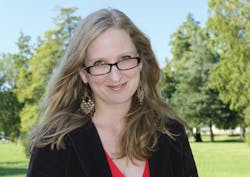Recently, I came across a press release from J. Martinez & Co., an Atlanta, Ga.-based purveyor of fine coffees and other gourmet items. It was touting the fact that “scientifically speaking, caffeine exposure has not been proven to have any negative effects on child’s development, and caffeine consumption often occurs at very early ages…”
Surely not, I thought. Are they saying we should gladly hand over a mug of gourmet coffee to our children just to encourage an increase in coffee drinkers? (For the record, they were not.)
As I thought about it, however, the truth is that most children (even preschool age) are allowed to drink soda, which contains roughly 40 milligrams of caffeine depending on size and brand as well as eat chocolate, with an estimated 100 milligrams per pound, or more reasonably, 10 milligrams in a 1.6 ounce bar. If these are consumed regularly, children might be getting 50 milligrams of caffeine in one sitting – more than half what is in coffee. Is that too high?
The FDA has no set limit for how much caffeine children should consume (not yet anyway), but gives a 400 milligrams a day limit to healthy adults, which it claims is about four or five cups of coffee.
While I couldn’t find specific caffeine guidelines from the American Academy of Pediatrics, in a release about energy drinks and sports drinks, the AAP said “Energy drinks pose potential health risks because of the stimulants they contain, and should never be consumed by children or adolescents” and that “Caffeine – by far the most popular stimulant – has been linked to a number of harmful health effects in children, including effects on the developing neurologic and cardiovascular systems.”
Caffeine is in healthy beverages too
While parents like myself might not be willing to offer coffee or an energy drink to a 5 year old, most people don’t have the same feeling about iced tea (which is largely what my children drink). Lightly sweetened, my doctor (who I guess doesn’t hold the same ideas as the AAP) agrees it is healthier than fruit juice and they like it better than water. But what about caffeine content?
It was hard to find. I had to contact the supplier and do some mental math. Each 8 ounce glass turns out to be about 35 milligrams of caffeine. Is this okay for age 5? What about at age 13 or 18? And are manufacturers marketing iced coffees and similar drinks to younger people, turning them into specialty beverage drinks, most of which include caffeine, earlier in life than the generation before?
The coffee culture is on the rise. Young people use drinking coffee or coffee based drinks as a social event. But how young is too young? And what kind of responsibility do sellers of some of these products, specifically, those vendors that sell iced tea, soda and energy drinks in schools have? With the scrutiny of all products sold to children coming from multiple government agencies, it’s important for vendors to educate themselves about these issues.
About the Author

Emily Refermat
Emily Refermat began covering the vending industry in 2006 and served as editor of Automatic Merchandiser from 2012 to 2019. To reach the current editor of Automatic Merchandiser and VendingMarketWatch.com, email [email protected].
